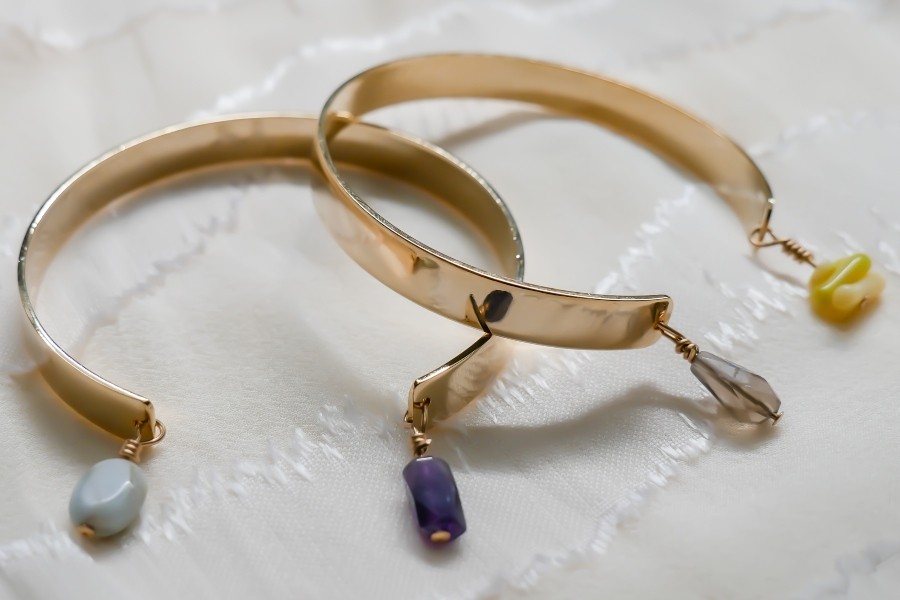
Why We Need Copper: Benefits & Myths
By Neesha Desai, Pharmacist (GPhC 2071387)
There are a lot of minerals and vitamins that our bodies need to function, from keeping our bones strong to our hearts pumping and brains firing. Copper is one of the lesser known but still vital nutrients that we need. But, we’ve only just begun to discover what our bodies use copper for, which has led to the rise of some speculative science and a few myths.
Here, we look at the ways copper is used in our bodies, we bust some of the myths around the uses of copper to benefit your health and offer suggestions for ways to ensure you get enough copper in your diet.
Copper Benefits: How We Use It
Let’s start with what we do know about how copper is used in our bodies. There are a few benefits to this marvelous mineral, including some that might surprise you.
Red & White Blood Cell Production

The NHS notes two main roles that copper plays in the body, they are:
- Helping with the production of red and white blood cells
- Triggering the release of iron to form haemoglobins.
Both of these are fundamentals for a healthy body since we need oxygen to function and red blood cells are how it is transported around the body. Hemoglobins are at the core of these red blood cells and it in combination with iron that these cells are able to bind oxygen for transport. White blood cells are made of bone marrow and they protect against infections by aiding in immune response. You can see how a lack of these two cells would be catastrophic for our bodies.
Healthy Brain Function

Our bodies need a good balance of copper to perform at their best. We can’t do without copper because it aids in brain function, literally allowing the pathways in our brain to pass messages. Some researchers even think that the variant ways in which our bodies utilise copper in the brain could change the way we think and ‘could partially account for differences in thinking among individuals.’
Forming Collagen

You’ve probably heard a lot about collagen, but it isn’t just important for skin elasticity – though you might assume that based on skincare advertising. Collagen is a protein that strengthens and supports all kinds of tissue, from ligaments and tendons to blood vessels and even our teeth.
Yes, collagen is great for keeping skin smooth and wrinkle free, if that’s what you want from you skin, but maintaining collagen production in your body with the help of copper will also keep you more active, for longer by keeping your muscles limber.
What Copper Could Do: Studies & Myths
Science is always advancing and learning new and more complex things about our world. Pick up any copy of New Scientist and you’ll be wowed by the research, testing and creations that are going on around the world. We don’t always realise how much we don’t know until we learn more. But, at a time when facts are vitally important, we also need to be aware of the myths that are out there.
Copper Supplements Could Help With Heart Conditions

Copper deficiencies, lower than average levels of copper, have been linked to heart failure and as a result a supplement containing copper may help to stop heart failure. It is thought that because Western diets are low in copper rich foods (see below), there could be a correlation between this and the prevalence of heart conditions. Moreover, a 2018 report noted a link between copper levels in the body and coronary heart disease – aka ischaemic heart disease (IHD). Coronary heart disease is very serious and is the cause of numerous deaths in the UK and around the world. Although the link between copper and heart conditions isn’t clear yet, there is hope that we may yet find a way of using copper in the mediation or cure of heart failure and heart disease.
Copper Bracelets Don’t Prevent Or Help With Arthritis

There are some who believe that wearing a copper bracelet or wristband can help to alleviate the symptoms of arthritis or help one to avoid getting arthritis. Sadly though, none of the studies done into this have been found to show any evidence that copper is of benefit.
There may yet be a link between copper and certain conditions, but it appears that there isn’t one between the mineral and arthritis – at least from skin contact.
Altzheimers May Be Related To Copper Intake

In a 2013 study, it was suggested that there could be a link in levels of copper in the brain and Altzheimer’s disease. On the surface, this may seem plausible as we know that there is a key role for copper in brain function. Altzheimer’s sufferers have been recorded to have lower levels of copper, but there is not considered to be enough evidence at this stage to suggest causality. In fact other studies have found the reverse, with too much copper in the brain due to it not being removed, leading scientists to consider it as the cause of issues in the brain. At this stage, no clear findings are available but further research is sure to either rule out copper or implicate it.
How Do We Get Copper?
Copper cannot be created in the body so we need to get it from the food and drink that we ingest. Luckily, it is a naturally occuring mineral and one that can be found easily in foods, if you look for them.
Copper Rich Foods

The three main foods that you can get copper from are shellfish, nuts and offal. Whether you are a meat lover, following a plant based diet or don’t love seafood, you have at least one food source for copper.
Copper Deficiencies
While there are concerns, particularly in the US and other Western countries, that we may not be getting enough copper in our diets, copper deficiencies are very rare. The only exception to this is for those who have other medical conditions that specifically cause issues, such as Menkes disease which ‘is an X-linked recessive disorder caused by mutations in genes coding for the copper-transport protein’.
For most people keeping an eye on your diet and what you are consuming, to ensure a range of ingredients, will allow you to avoid insufficient copper levels or a copper deficiency.
Learn More About Vital Minerals
Sorting fact from fiction when it comes to nutrition can feel difficult and complicated. This is why we have created a number of accessible, informative guides on various vitamins and minerals to help guide those who want to better understand their dietary needs. You can also find key information, such as what minerals you need and in what amounts, in our Minerals Glossary.
Disclaimer
The products offered are not intended to diagnose, treat, cure, or prevent any illness or disease, or replace the advice of a medical professional. Results are not guaranteed and may vary from individual to individual.

